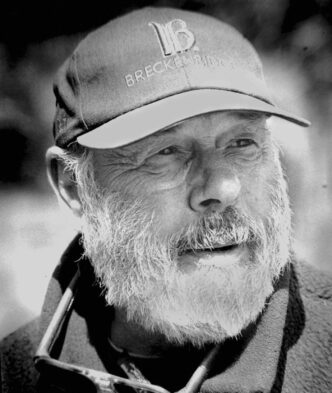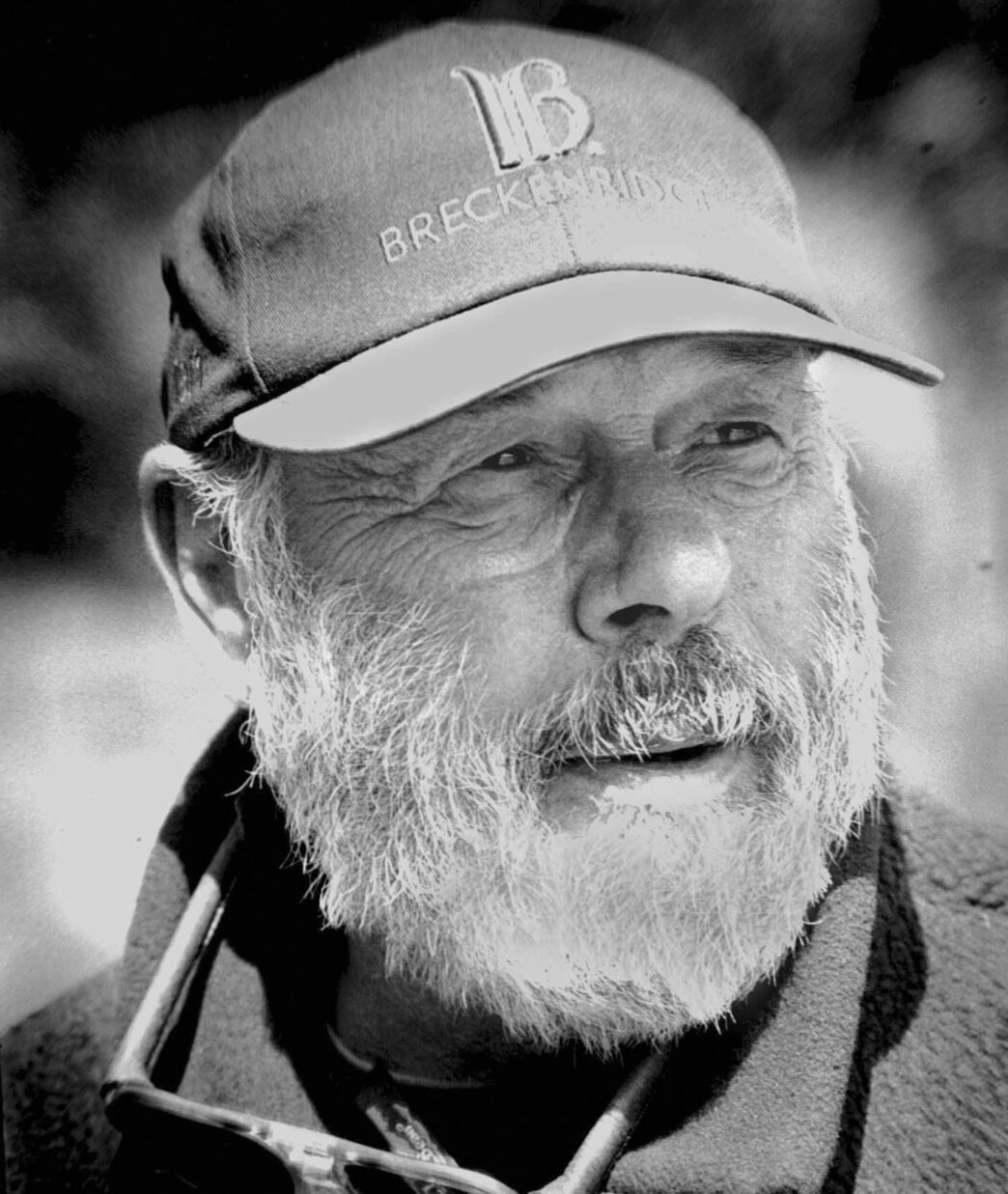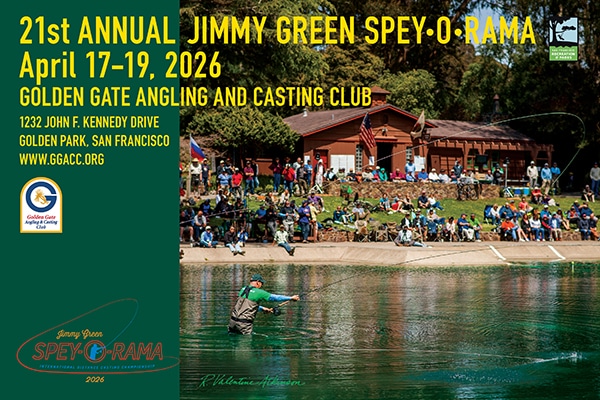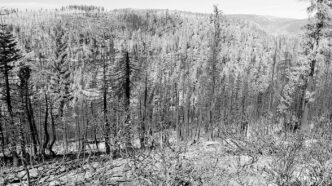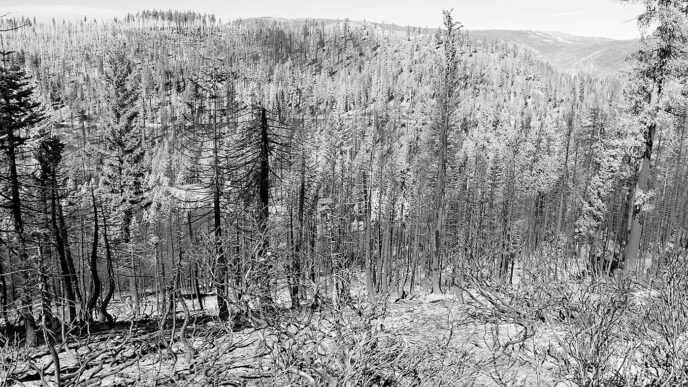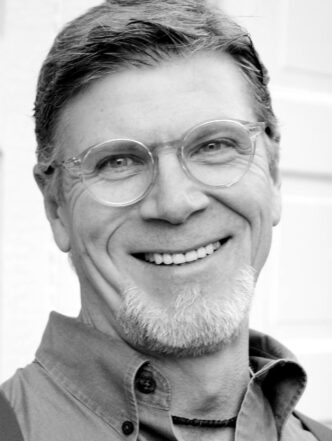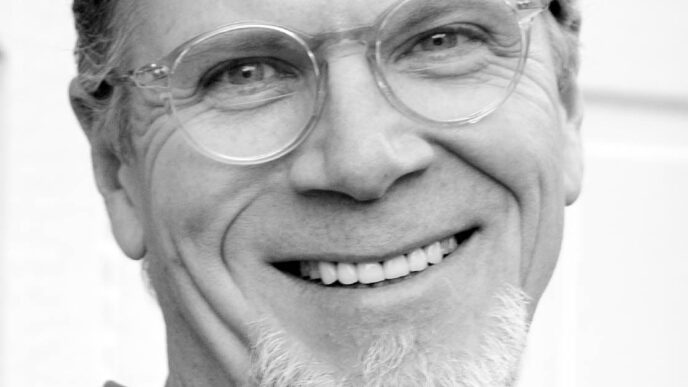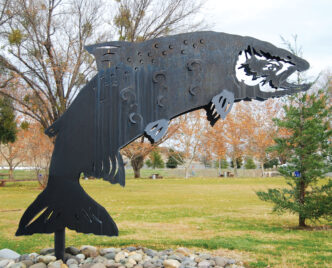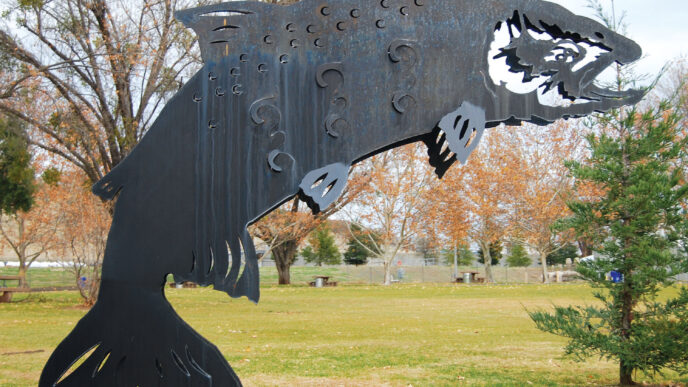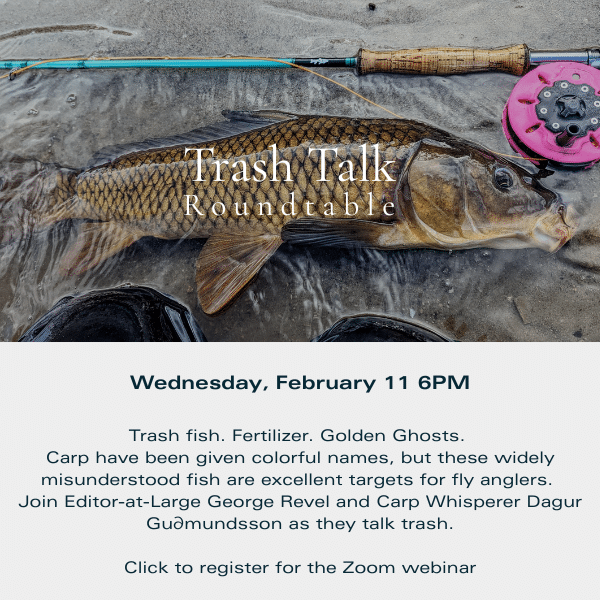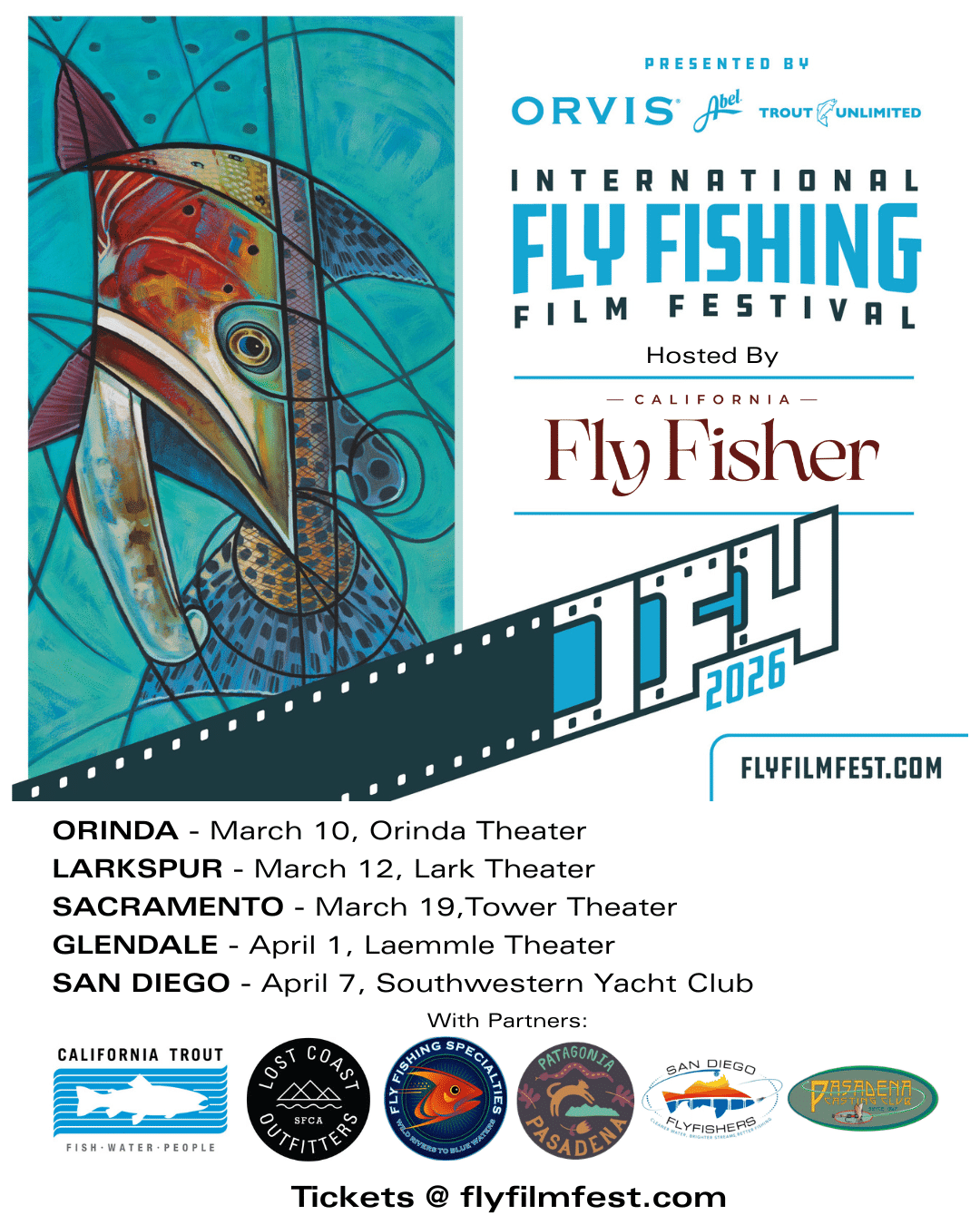Robert Joseph Baiocchi — Bob, to the thousands who knew him — died on September 8, 2013, in Napa at the age of 82. Some have called the ardent fly fisher and consummate environmentalist a conservation legend. “Happy and tough. Those are the words I’m hearing from folks who had gotten to know him,” said his daughter, Christina Aranguren, of Calistoga. “State fisheries have lost a water warrior.”
“Water warrior” is just one of the many ways Bob has been described over the 30 years he devoted to fighting for fish. A retired state water board official called him “Henny Penny,” because Bob always alerted public officials where the “sky was falling.” On learning of his death, that same official said the staff reverentially called him the “Gila monster,” because once he bit into a problem, he was not going to let go unless someone could give him a very good explanation how it had been resolved. Bob could be acerbic if he didn’t get his way with officials responsible for preserving fish and fish habitat.
While living in Graeagle in Plumas County, Bob provided critical comments on water quality and quantity, dam licensing and operations, water rights, and stream water diversions. He regularly fished the area’s streams and lakes, which were among the waters he worked to protect. Declining health forced him to move to Napa two and a half years ago to be closer to his family. In addition to Christina, Bob had three other children: Joel, Teresa, and Jon, who is a fishing guide on many of his father’s favorite waters.
“Considered a relentless bulldog of environmental justice, Bob worked tirelessly to preserve and protect West Coast fisheries,” said Jon. “I was so lucky to have him as a dad and for him to share fly fishing with me at such an early age. From here on out, every cast, every presentation will be in honor of him.”
Jon added that his father fought for many rivers, including the Sacramento, Russian, Feather, Fall, Eel, Santa Yñez, Butte, Pit, Truckee, Navarro, Calaveras, Salinas, Mokelumne, Carmel, and Napa. He also strived to protect water and fish in Lake Oroville, Lake Davis, Eagle Lake, and others. “He filed detailed, voluminous amounts of research, protests, complaints, and comments and provided expert testimony to state and federal agencies, approaching each issue with fierceness and passion and a sense of humor, as well as outrage,” said Jon.
In fact, on the day before he died, Bob was busy writing a legal complaint on water issues facing the Napa River. “Despite cancer, three-times-weekly dialysis, and heart disease, Bob continued to work,” said Christina, who looked after her father in his final years. “His last efforts were spent on the Napa River and its tributaries. On the day just prior to his hospitalization, Bob began work on his final petition of complaint. He finished a single page before lying down in pain and exhaustion.
“Dad had long considered the Napa River to be one of the most abused in the state, which is saying a lot. Bob arrived in Napa County and could see for himself the problems with the Napa and its watershed — or what was left of it, anyway,” she said. “He immediately went to the task, beginning with discovery work on his computer. He was always concerned with illegal diversions of the state’s waters. On the Napa, there were reputed to be over 300 of them. He became concerned with what he believed was the City of Calistoga’s mismanagement of its water supply and wastewater treatment facility, which lies just adjacent the Napa River. He learned that geothermal water extensively utilized by local spas and resorts was pol-luting the river with heavy metals.” She added that Bob’s research and the complaint on the Napa will be completed by others and submitted.
Despite declining health over the past two years, Bob had also been working on water rights and dam issues on Lake Hennessey Reservoir, Eagle and Davis Lakes, and on the Russian, Carmel, upper Feather, and Yuba Rivers.
He served as a consultant to many fishing and river organizations, including the California Sportfishing Protection Alliance (CSPA), the Fall River Wild Trout Foundation, the Friends of the Eel River, the Carmel River Steelhead Association, the Northern California Council Federation of Fly Fishers, and more. He served as president, executive director, or conservation chair of the CSPA, the Chico Fly Fishing Club, the Northern California Flyfishermen for Conservation, and The Anglers Committee, and he most recently headed California Fisheries and Water Unlimited, a group he founded.
In addition, he served on the Oroville Recreation Advisory Committee, the Stony Creek Task Force, the Butte County Fish and Game Commission, and the Cantara Trustee Council, which oversaw mitigation funds for restoration following the train derailment and chemical spill on the upper Sacramento River at Dunsmuir.
The hallmark of Bob’s legacy was his tireless work fighting for water rights issues and opposing fish-damaging stream diversions, dam construction, and dam operations. “I can think of no single individual who has had a greater impact on California water than Bob,” said Charles Rich, a retired chief of the Complaint Unit of the Division of Water Rights for the State Water Resources Control Board, who worked with Bob for decades on water issues. “Bob served as the collective conscience for the people of California and refused to allow the body politic to sweep fishery issues under the rug.”
Rich said Bob could be a very persistent in arguing for fish on water issues, but as a public official, he learned how to get along with Bob by following a couple of self-imposed rules. “1. Never, ever lie to Bob. One always did much better with the truth, even if it meant that you and Bob just needed to agree to disagree on the relative values of using water for fish versus other uses. He would respect you for your disagreement as long as it was truthful, but he would never forgive you if you lied to him. Bob was somewhat a throwback. He expected truthfulness,” said Rich. “2. Never try to argue with Bob in writing — even if you are certain you are right. He seemed to have the fastest computer and printer in California, and no matter how complete and compelling your response to him was, he was going to get in the last written word. This usually meant that the complaint or protest couldn’t be resolved without a public hearing.” Added Rich: “While many water diverters may breathe a sigh of relief at Bob’s passing, California will surely be worse off, because he served an important purpose as the fishs’ lobbyist.”
Bob loved to lobby outdoor writers. For instance, during the work of the Cantara Trustee Council, this reporter got an urgent call from Bob, who was upset by a proposal to spend the bulk of the funds outside the spill area of the popular fly-fishing river. He was frantic — Bob’s usual mode in such situations. In the end, he prevailed. The funds were used mostly to restore the upper Sacramento.
It wasn’t by any means the first phone call this reporter received from Bob, including a personal and very timely one that I will never forget. It happened years ago, when I was in the middle of several interviews with Bob for a California Fly Fisher column — a lengthy process because of his penchant for detail, his historical knowledge, and the complexity of the issues. Before one of the interviews was completed, I was called away to the intensive care unit at the U.C. Davis Medical Center for an emergency involving one of my children. I was a wreck. As our family waited in the ICU, the phone rang. It was Bob with a message of cheer and hope. He called every day of the hospital stay.
That was classic Bob, who always had time for his friends and knew a little something about doctors and hospitals, being a longtime cancer survivor.
For his work, Bob won many awards and recognitions, including from the National Oceanic and Atmospheric Administration Award for Environmental Heroism in 2001, the Federation of Fly Fishers Award for National Conservation in 1989, the Sierra Club’s Conservationist of the Year Award in 1982, and California Trout’s Streamkeeper Award in 1976. He was inducted into the Northern California Council Federation of Fly Fishers’ Fly Fishing Hall of Fame in 1999.
On learning of his death from Jon’s post on the message board of Kiene’s Fly Shop in Sacramento, many friends sent condolences and recognized Bob’s accomplishments: “If you have been around the sport of fly fishing in Nor Cal for very long, you would have known Bob He really loved nature and fought hard to protect it,” posted Bill Kiene, the fly shop’s retired owner. Bob “was a pit bull when it came to protecting our fisheries, and his adversaries knew all too well that he didn’t let go until the problem had been resolved. He did one hell of a job and has left his mark through out this state of ours,” wrote Peter Niebauer.
Born on March 26, 1931, to Francis and Nellie Baiocchi of San Francisco, Bob spent most of his youth in the city and at his grandparents’ ranch in Santa Rosa. As a youngster, Bob fished with his immigrant father for stripers at the mouth of the Napa River from a rowboat. He attended Balboa High School, concentrating on baseball until an accident to his pitching hand ended a promising career. (Even in his last days, Bob had time to cheer for his beloved San Francisco Giants.)
He worked for A. P. Giannini as an accountant before entering the produce business with the Scatena-Galli Fruit Company. Following military service in Japan from 1952 to 1954, he married Lois Ann Carli and was employed by Lucky stores in San Jose until moving his young family to Paradise, California, in 1967.
It was during his time in Paradise, hiking and fishing local lakes and streams, that Bob’s attention turned toward fisheries advocacy, motivated by the discovery of violations of water-use regulations by PG&E. He became active, studying water rights and learning administrative law and the public trust doctrine. In 1982, he turned professional. He retired from managing produce to concentrate solely on watershed protection and restoring state fisheries.
According to Jon, “Bob has requested that special attention be directed toward conservation efforts of a favorite piece of water, even if it is a single hour spent on a letter of protest, petition, or public comment. He asked that folks learn as he did, to speak for the fish, and most importantly, never to give up.” Finally, Jon added, his father left this parting advice to fellow conservationists: “Don’t cry for me. Grieve for the fish.”
A private ceremony with a “fisherman’s Mass” is planned, and a more public celebration of Bob’s life will be held next June at Lake Davis. Condolences may be mailed to Baiocchi’s family at California Fisheries & Water Unlimited, P. O. Box 924, Calistoga, CA, 94515, or e-mailed to bobbaiocchi@yahoo.com.



